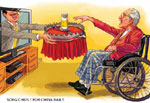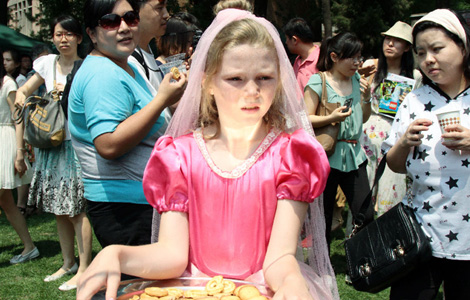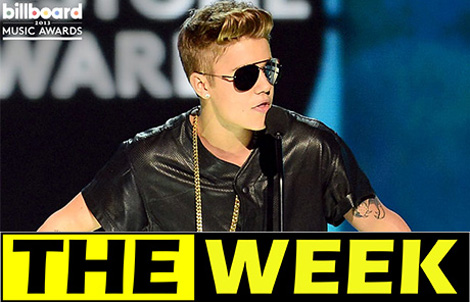Yuan to continue rising against US dollar
Updated: 2013-05-29 08:03
By Xie Yu in Shanghai (China Daily)
|
|||||||||||
Despite a slight adjustment on Tuesday, foreign exchange dealers expect the yuan to continue rising against the US dollar after hitting a new high on Monday because of a large inflow of capital and pressure from the US.
Spot yuan was trading at 6.1222 against the dollar at midday on Tuesday, down slightly from 6.1211 at the close on Monday, falling back from a high of 6.1210, a record since China established the domestic foreign exchange market in 1994.
The People's Bank of China, the central bank, set the yuan central parity rate against the dollar at 6.1811 on Monday, 56 basis points higher than the previous trading day.
"Near-term RMB appreciation is likely, and if China reverts back to its historical foreign exchange appreciation trend, we would expect the fix to decline to around 6.13 by the date of the Strategic and Economic Dialogue between US and China to be held in July," Nomura said in a report released on Tuesday.
Nomura said it boosted their short USD/CNY Non-deliverable Forwards position for the third time since April 19, which increases a long RMB recommendation.
"I believe pressure from the US is going to push renminbi higher. China still calculates the yuan's exchange rate mainly against the US dollar, although the government tried to peg it against a basket of foreign currencies rather than the dollar alone," said Aries Lai, a senior foreign exchange trader based in Hong Kong.
Monetary authorities have warned of a huge inflow of hot money into the Chinese market, mainly to cash in on yuan appreciation and relatively high interest rates.
The country's new foreign exchange purchases, an indicator for monitoring capital inflows, amounted to 1.2 trillion yuan ($193.5 billion) in the first quarter, a huge increase on the 500 billion yuan for the whole of 2012.
Tightened regulatory measures will take effect on June 1, in which the country's top foreign exchange watchdog, the State Administration of Foreign Exchange, requires banks to report suspicious transactions and take measures to prevent abnormal cross-border capital inflows, as well as maintain a reasonable growth of trade financing.
Analysts said it is unlikely that Chinese monetary authorities will cut interest rates to discourage the influx of hot money.
"Cutting interest rates would not help," said Xu Gao, chief economist of Everbright Securities, on the sideline of FX Week China forum in Shanghai on Tuesday.
"A substantial interest rate gap between China and foreign countries has existed for years. There are more reasons for the speculative money to flow into China."
Meanwhile, there is no room for an interest rate cut in China, since the market already has ample liquidity and faces inflation risks, he added.
"Interest rates do not matter that much, it is the volatility that really matters," Xu said, adding that the authority should loosen intervention with the exchange rates, and broaden the daily floating band for renminbi against the dollar.
The People's Bank of China allows the exchange rate to rise or fall 1 percent from official midpoint rate it sets each morning.
Deputy governor of the People's Bank of China Yi Gang said last month that the exchange rate is going to be more market-oriented.
Analysts and the media are expecting a 1.5 to 2 percent floating band from the current 1 percent, which is to encourage two-way volatility and inject uncertainty into the market and some two-way movements in the currency.
As of Monday, the yuan had appreciated 1.72 percent against the dollar since the beginning of the year, following a moderate gain of 1.03 percent throughout 2012.
xieyu@chinadaily.com.cn
(China Daily 05/29/2013 page14)
Today's Top News
Germany to pay $1b for ageing Holocaust victims
Beijing seeks cooperation with US on cyberattacks
China to speed up service growth
Infant's fall in pipe probed
Developer invests $1.5b in London
Schoolchildren taught to avoid sexual assault
Traffickers await appeal verdict
Female condoms, a new choice
Hot Topics
Lunar probe , China growth forecasts, Emission rules get tougher, China seen through 'colored lens', International board,
Editor's Picks

|

|

|

|

|

|





